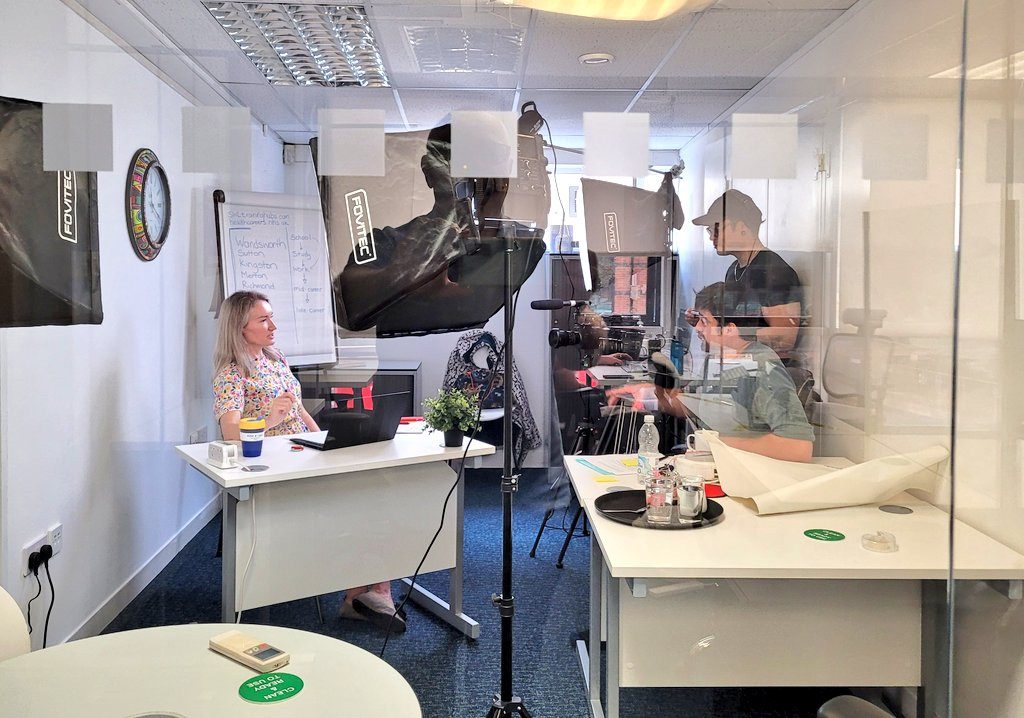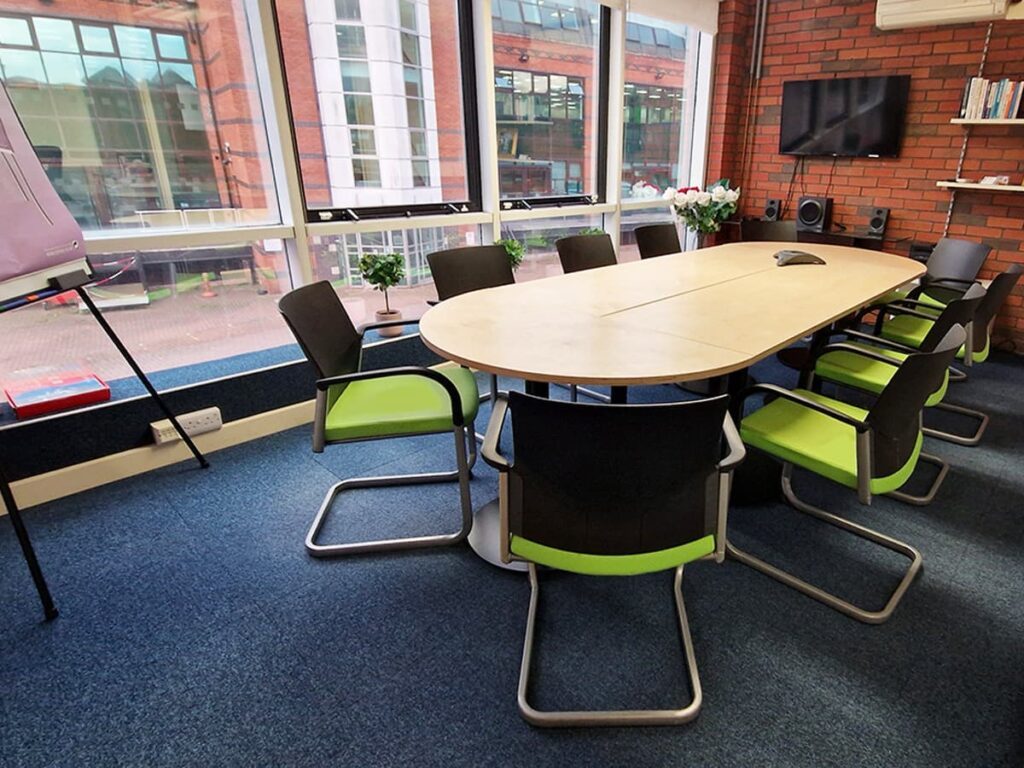David Randall, a London coworking space operator, secured almost £100k in business rate rebates across two sites thanks to free advice from London Business Partnership’s experts. He now wants Business Rates to become fairer for all coworking spaces.
The accidental coworking operator
David Randall co-founded two co-working spaces “by accident” in the early days of the coworking trend.
In 2013, he was approached by pub landlord and property tenant, Richard, who became his business partner. Richard had planned to extend his pub but changed his mind, and was left with an empty property in Surbiton. They had previously met via the networking group, Surbiton Business Community, and together they repurposed the building into a coworking space to mitigate the losses. This became Maple Works.
Canbury Works, David’s second coworking business in Kingston-Upon-Thames, came about in a similar way in 2016. A tenant, called Sam, had moved out of a building on an industrial estate with 14 months left on the lease and 11 months of business rates to pay after the landlord announced that they were selling the building.
The local Chamber of Commerce asked David if he would be interested in helping Sam to offer the empty building as a coworking space to reduce some of his losses. David and Sam set up Canbury Works as a short-term business, but the building ended up being sold, and when the new landlord offered everyone new five-year leases, the coworking business became permanent.

Discovering a strategy for challenging rates
Business rates were a significant expense for both Maple Works and Canbury Works, but they were costs which were necessary – or so the founders thought.
It was only when David received an email from the social enterprise, London Business Partnership (LBP) in June 2019 inviting him to a free advice seminar on coworking business rate relief, that he wondered whether he might learn about making savings.
David remembers: “I don’t think any of us in the room knew how people running large multiple serviced offices managed to limit their business rates obligations. But we learned that there is a clear process for checking and challenging business rates as coworking space operators if you think you might be paying too much.
“The key is to claim relief for the individual units within a coworking space which you have licensed out to other occupiers. If there is a self-contained office, room or unit, i.e. with four walls and its own door, that is licenced to another occupier by formal agreement, you can check and challenge the valuation on the whole building in which that room sits, and create separate hereditaments for each of those other self-contained spaces which are not shared spaces.
“It will often be the case that all the new hereditaments, when correctly calculated, qualify for small business rates relief. When you complete your check and challenge for and on behalf of yourself as overall operator and the other occupiers, you could well end up actually paying no business rates at all.
“Serviced office companies who are on top of the legislation like Regus and WeWork had long known this, and were receiving substantial business rates relief. Well, we did not know any of that. I guess local authorities did not want to tell us – it is not in their interest.
“The business rate system in general is not fit for purpose when it comes to coworking spaces. We have licensees moving on long before each revaluation period, which is every five years. Some only stay for a few months. The system does not recognise the existence of the flexible workspace market at all.
“This is why there are calls for change. We need exceptions to the standard model. Coworking requires a more flexible system that is fairer for everybody,” adds David.

Welcome refunds
The seminar proved pivotal – David put his newfound knowledge to use soon after.
During the pandemic, David identified which units at Maple Works and Canbury Works were eligible for rate relief. Following the advice provided by LPB’s property advice programme, they collaborated with occupants of the individual units in both coworking spaces; they wrote Letters of Authority, enabling David to act on their behalf, and they submitted Small Business Rate Relief (SBBR) claims for all the proposed new hereditaments.
Starting by submitting a claim for Canbury Works, David challenged the local authority’s valuation. The outcome was a pleasant surprise.
He comments: “We received a refund on our overpayments of nearly £65,000 backdated to the beginning of the valuation period, which was 1 April 2017, a valuation period which had been extended to six years because of the pandemic. You might think, ‘we’re in the money!’, but unfortunately we were already £75,000 in rent arrears to the landlord because of the pandemic, so every penny went straight to them.”
Maple Works was already eligible for a proportion of SBRR, but a further check and challenge resulted in a £30,000 rebate, which was invested in improving the site for the licensees and dealing with essential jobs such as installing a new alarm system and replacing the boiler.
David says, “Had I not heard about LBP’s business rate relief seminar, then we would not have had that money. It is as simple as that. I would recommend that wherever possible, coworking space operators and other commercial property tenants seek out this brilliant expert advice.”
David accessed a former programme run by LBP, but their current initiative is the free Property Advice Service which offers the same support. Funded by the UK Shared Prosperity Fund and with the backing of the GLA, and multiple borough councils and enterprise networks, the programme is open to SMEs around London.
Now they are established in the coworking community, David suggests campaigning for a business rates system change that recognises the contribution that flexible, affordable workspaces make to the community.
His final words on the matter: “Working with stakeholders like the local government and London Business Partnership – who run the free Property Advice Service on behalf of the Greater London Authority, we can make that happen!”


